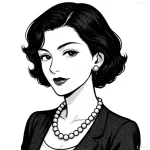“All women become like their mothers. That is their tragedy. No man does. That’s his.”

- October 16, 1854 – November 30, 1900
- Irish
- Author, poet, playwright
table of contents
Quote
“All women become like their mothers. That is their tragedy. No man does. That’s his.”
Explanation
In this quote, Oscar Wilde presents a humorous and ironic commentary on the nature of inheritance and the way gender roles shape our identities. Wilde suggests that for women, becoming like their mothers is an inevitable tragic fate, implying that women often inherit their mothers’ traits, behaviors, and roles, whether they desire to or not. This tragic fate comes from the societal expectations that women must emulate the women who came before them, particularly their mothers, and continue the same patterns of domesticity and maternal sacrifice. In contrast, Wilde observes that men, when they grow older, do not become like their fathers, and this lack of inheritance is presented as tragic for men because it reflects a lack of continuity or connection to their male predecessors.
Wilde’s statement also plays on the complexities of familial relationships and the idea that while women’s roles are often shaped by the family and maternal legacy, men often have the freedom to avoid this generational connection. It highlights the pressures and expectations that women face to conform to a certain ideal or pattern of behavior, which can feel like a trap or tragedy. For men, Wilde implies that their lack of generational continuity with their fathers can be seen as a failure or loss, as they might not share the same familial bonds or connections.
In modern contexts, this quote might be interpreted as a critique of gender roles and the expectations placed on both women and men. Wilde’s words encourage us to reflect on how societal norms influence the way we see family inheritance, identity, and individuality, particularly in relation to gender. It challenges us to think about how both women and men are shaped by their families and the expectations of society, and how these generational dynamics might limit or define their ability to forge their own path.
Would you like to share your impressions or related stories about this quote in the comments section?



